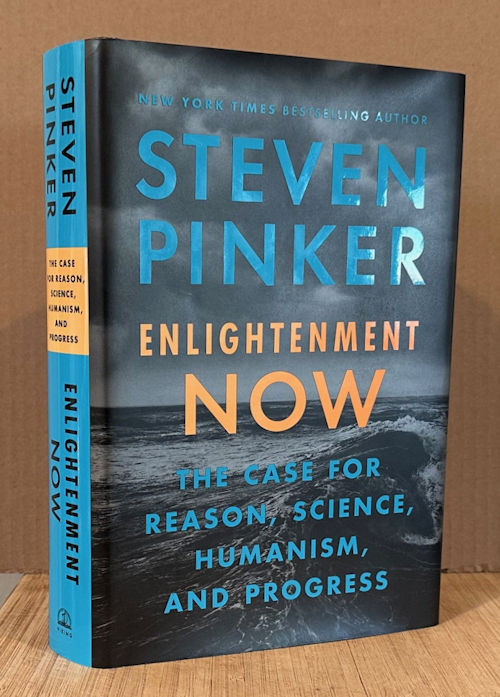Subtitled “The Case for Reason, Science, Humanism, and Progress”
(Viking, Feb. 2018, xix+556pp, including 102pp of notes, references, and index.)

Posts about this book: Post 1; Post 2; Post 3; Post 4; Post 5. Expanded below.
Part I of this book outlined the ideas of the Enlightenment; Part II showed how those ideas worked. Part III defends the three other themes of this book against surprising enemies.
This post covers two of the three chapters in Part III.
The chapter on Reason addresses questions of why, since we *can* reason, we are so easily led into folly. Not so much from ignorance as affiliations with religions or other ideologies, and motivated reasoning, in-group thinking. Conservatives seem to doubt progress is even desirable, let alone possible; the certainties of traditional Christendom are preferable; Pinker rejects this resoundingly. But the left too rejects caricatures of certain ideas. Key idea: the test of empirical rationality is prediction. Some pundits are always wrong. And conservative politics is increasingly know-nothing. How to improve reasoning powers? Teach critical thinking, but it has to be hands-on teaching.
The chapter on Science exalts it as “the proudest accomplishment of our species.” Why the disdain, even from intellectuals? The fear of ‘scientism,’ the idea that science can have anything to say about CP Snow’s second culture, the humanities. But the practices of science are designed to make up for the flaws of individual human beings, and to rely on two key ideas: the world is intelligible, and we allow the world to tell us whether our ideas about it our correct. Most people are happy to accept the practical benefits of science, but reject science’s implications about the lack of truth of the world’s traditional religions and cultures — with quotes of two long paragraphs about what we know about the world through science, how many traditional ideas, from fate and karma to answered prayers, simply aren’t true, and how this underlying scientific understanding of the world necessarily grounds our approach to morality and our responsibility to take care of ourselves and our planet. With final comments about how science is treated in academia, how opponents resist quantification in favor of intuition, and how ideas of E.O. Wilson’s consilience offer more hope than the pre-Darwinian, pre-Copernican worldviews of people like Leon Wieseltier.
Continue reading →














